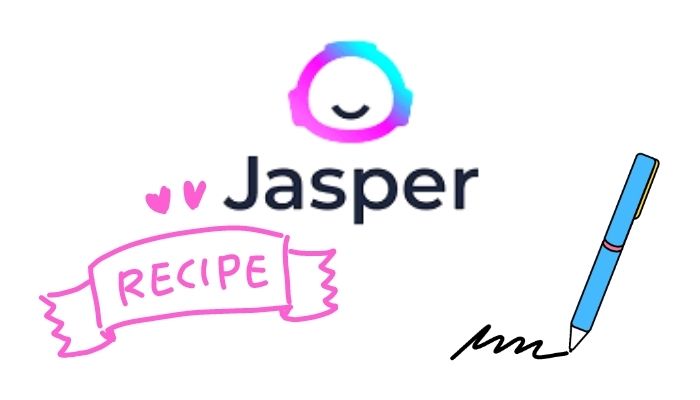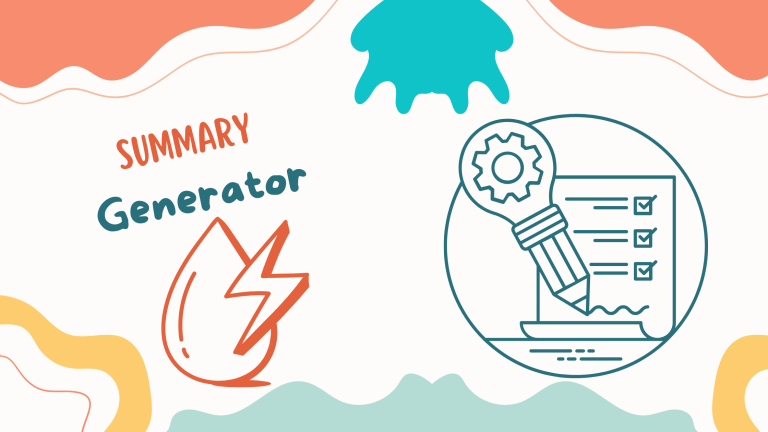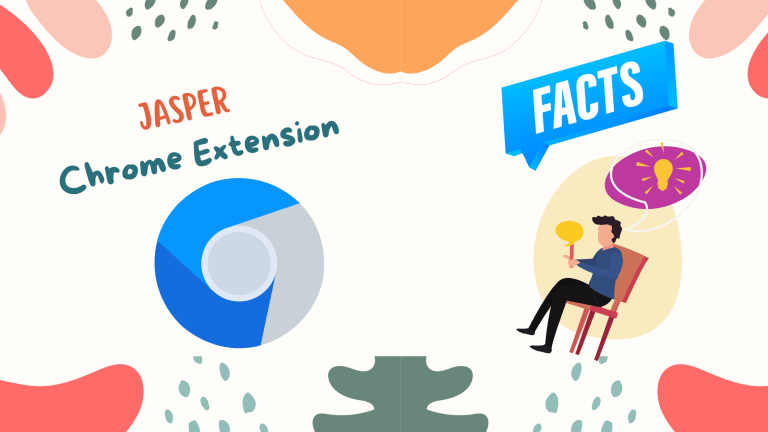37 Best Effective Writing Strategies For Aspiring Writers
Writing is a hard skill that can be learned and improved upon over time. In this blog post, we will discuss some of the best writing strategies for aspiring writers.
These tips will help you to write effectively and produce high-quality content. So, if you are looking to improve your writing skills, read on!
Note, you can write an essay by yourself or you can get help from
Find out the 15 Best AI Essay Writer Software For Original Content in 2022

Writing essays can be a daunting and time-consuming task, especially when you have other commitments.
It’s hard to know where to start, what topics to choose, and how to make your essay interesting and original.
Our writing strategies will help you generate unique content quickly and easily. You’ll be able to finish an essay on time without sacrificing quality or originality.
What is a Writing Strategy?
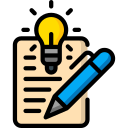
A writing strategy is a plan that helps you organize your thoughts and ideas when writing.
It can be helpful to think of the writing process as a circle, with each stage leading to the next.
The first stage is pre-writing, where you brainstorm ideas and do research.
The second stage is drafting, where you start to put your ideas into sentences and paragraphs.
The third stage is revising, where you make changes to improve your writing.
Finally, the last stage is editing, where you check for mistakes and make sure your writing is clear and concise.
By using a writing strategy, you can make sure that your writing is well-organized and error-free.
What Are the Different Styles of Writing?
1. Narrative Writing

The power of storytelling is undeniable.
It can be used to tell any type or size story, from epic tales that span years and continents all the way down into moments in time so small they happen just once-but these are always exciting!
It is the most important Writing Strategies style in ICSR Individual Case Safety
Report as HCPs must know how to describe the events in-patient life that leads to the occurrence of ADRs to report according to GVP ( Good Pharmacovigilance Practice)
2. Descriptive Writing

The descriptive writing style is a type of writing that skilled writers use to produce detailed descriptions of people, places, objects, or events.
In descriptive writing, a writer will often use carefully chosen language to create specific images and sensations in the reader’s mind.
Sentence structure is also important in descriptive writing, as writers will often use short, simple sentences to create a sense of momentum or to highlight particular details.
By using these and other techniques, writers can produce vivid descriptions that can give readers a strong sense of the subject matter.
3. Persuasive Writing

Persuasive writing is one of the styles of Writing Strategies that aims to convince the reader to agree with the writer’s point of view.
It is often used in writing workshops with professional writers, as it can help to improve writing abilities.
Persuasive writing style often uses strong arguments and emotive language to try and sway the reader.
It can be helpful to think about how you would like to be persuaded if you were the reader, and then structure your writing accordingly.
However, it is important to remember that not everyone will respond to persuasive writing in the same way, so it is also important to be aware of your audience and what might work best for them.
Whatever style of writing you choose, always aim to be clear, concise, and convincing.
4. Expository Writing

Expository writing is a type of writing where the main goal is to explain, inform, or describe.
These types of Writing Strategies can be found in textbooks, How-To manuals, and research papers.
When writing expository text, it is important to focus on clear and concise language.
The main point should be clearly stated at the beginning of the piece, and each subsequent paragraph should build on this main idea.
In addition, expository writing requires strong research skills. Writers must consult reliable sources in order to back up their claims.
Finally, the expository writing process often begins with brainstorming and pre-writing activities.
This helps writers to organize their thoughts and develop a plan for the piece.
By understanding the main characteristics of expository writing, students can learn to write clear and informative texts.
5. Creative Writing

Creative writing is a style of writing that emphasizes the writer’s creativity and individuality.
Unlike other styles of writing, such as journalistic or academic writing, creative writing is not bound by strict rules.
Instead, creative writers use their imaginations to come up with new ideas and stories. Many people believe that good writing skills are essential for success in any field.
However, creative Writing Strategies are often seen as a talent that cannot be taught.
While it is true that some people are naturally gifted writers, everyone can improve their writing skills by practicing and reading good writing.
The most important thing for any writer, regardless of their skill level, is to capture the reader’s attention and keep them engaged.
By using innovative techniques and interesting ideas, creative writers can write engaging pieces that stand out from the rest.
What is the best AI Essay Writing Tool?
It is using AI tool to help you generate content fast to save time. In addition to Jasper Recipes to write faster.

Best AI Writing Tools.
Save Time & Easily express whatever you want to say.
Here you can find the best AI Essay writer listed and reviewed.
What is the difference between Active Voice and Passive Voice in Writing?

When it comes to formal Writing Strategies, an active voice is usually the way to go. Active voice happens when the subject of the sentence is doing the verb.
For example: “I am writing a paper.”
In passive voice, the subject is being acted upon by the verb. It would be the same sentence, but written like this:
“A paper is being written by me.”
As you can see, the active voice is shorter, simpler, and generally easier to understand. It also sounds more dynamic and exciting than passive voice.
That’s why active voice is often used in formal Writing Strategies. However, there are exceptions to every rule.
Sometimes, passive voice can be used for emphasis or to sound more formal.
It all depends on your word choice and what effect you’re going for in your Writing Strategies.
Writing Strategies in logical order For Effective Fast Writing
There are various strategies that can help you write more effectively and efficiently.
However, finding the right strategy depends on your writing goals and the type of writing assignment you are working on.
For example, if you are writing an essay for a writing workshop, you may want to brainstorm ideas with a group before starting to write.
This can help you generate ideas and get feedback on your essay before you start writing the draft.
However, if you are working on a Writing Strategies assignment for class, it may be more effective to start by doing some research and then outlining your paper.
Once you have a clear understanding of your topic and what you want to say, you can start drafting your essay.
By taking the time to plan and organize your thoughts before you start writing, you can save yourself a lot of time in the long run.
37 Writing Strategies To Write Fast & Deliver Quality Content

I Conducting Research
II Getting Started
III Writing
IV Staying Focused
V After Writing
Here is how to implement all of these strategies for writing:
The first stage is the research and getting started

There’s no point in choosing a topic if it isn’t something that interests you. So make sure to select one with some gusto and creativity!
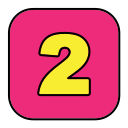
It’s not always easy to figure out how a particular task should be carried out, but don’t worry. If you’re struggling with something and aren’t quite sure of your next steps just ask!
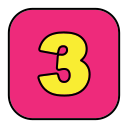
When writing, it is important to make good use of the Internet to find relevant sources.
There are many useful sites and resources available on this vast network we call “the web.”
Links from your professor will help you expand into new territory with credible sources that can be expanded upon rather than just taken at face value or relied upon solely for inspiration without any further research!

What are you waiting for? Get in the habit of morning journaling! You can start by setting aside one hour each day to write.
It may seem like an insignificant time, but over weeks and months, it will make a difference – both how much material is produced.
As well as what kind (or even if) those ideas come from while writing them down on paper or digital devices like phones/tablets, etc.
The more routine this becomes part of your daily life; say goodbye and hello to creativity.

5- If you’re struggling to write an essay, one of the best brainstorming techniques is to free write.
To free write, start by setting a timer for five or ten minutes. Then, start Writing Strategies nonstop about the topic of your essay.
Don’t worry about grammar, spelling, or punctuation; just let your ideas flow.
Once the timer goes off, read over what you’ve written and highlight any interesting insights or ideas.
From there, you can start to develop a more focused essay by narrowing down your free-write to a specific thesis or argument.
If you’re still struggling to generate ideas, other writing strategies include mind mapping and listing.
With mind mapping, you start by writing down your main idea in the middle of a piece of paper and then drawing branches off of that main idea.
Each branch represents a different subtopic or supporting point for your essay.
Listing is a similar strategy; start by writing down your main idea and then listing all of the possible subtopics or supporting points beneath it.
By using one of these brainstorming techniques, you can take the first step toward writing a successful essay.

Mind-mapping can be a great way to get your thoughts organized to stay focused and figure out where you are going.
Start by drawing an outline of the paper with questions in mind, then connect those ideas together using lines as branches or pointers for further research!

The process of Writing Strategies is like building a house.
You need to begin with an idea, then collect data for initial drafts and information from your research sessions so that you can construct the perfect paragraph or even book!
The output tone should remain creative as well because there are many different ways one might go about constructing their work.
Some people prefer order while others may want more creativity involved in terms of getting started…whatever works best for YOU.

If you’re in a hurry, use this simple tip to come up with topic sentences for your essays.
Just make sure that each paragraph is based on one main idea so it’s easier than trying to juggle all those details while writing!
Now it is time for writing
Knowing the techniques for Writing Strategies can be difficult.
However, with a little creativity and knowledge on how to use these strategies correctly, you will find that your work is much better than before!

Formal language is often thought of as being dry, stilted, or difficult to understand.
However, when used correctly, formal language can actually be quite concise and clear. One of the best ways to ensure that your writing is formal and effective is to use an active voice.
Active voice occurs when the subject of a sentence is performing the verb. For example, “The teacher is leading the class.”
In contrast, passive voice happens when the subject of a sentence is being acted upon by the verb. For example, “The class is being led by the teacher.”
Using an active voice makes your writing sound more confident and authoritative. It can also help to reduce wordiness and make your meaning clear.
If you’re struggling with writer’s block, try starting your essay with an active sentence.
You’ll be surprised at how much easier it is to keep writing once you’ve gotten started.
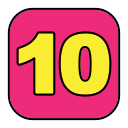
Effective strategies for minimizing “there is/are” in your writing. “There is” and “there are” can make your writing sound unnatural and cumbersome.
However, there are effective strategies for minimizing their use.
One effective strategy is to start your sentence with the subject of the sentence (the noun) rather than with “there.”
For example, rather than writing “There are three effective strategies for minimizing ‘there is/are’ in your writing,” you could write “Three effective strategies for minimizing ‘there is/are’ in your writing are…”
Another effective strategy is to use the active voice rather than the passive voice.
For example, rather than writing “It is important to start your sentence with the subject of the sentence,” you could write “Starting your sentence with the subject of the sentence is important.”
By following these simple strategies, you can minimize the use of “there is/are” in your writing and make your sentences sound more natural and concise.

When writing assignments, whether it be a school essay or a work memo, can benefit from concise writing.
Oftentimes, students (myself included) tend to use more words than necessary in order to reach the minimum word count for an assignment.
However, using unnecessary filler words not only makes your writing sound amateurish but will also cost you valuable time that could be spent revising the meat of your essay.
The next time you sit down to write a paper, take a moment to consider which words are absolutely essential to convey your argument.
Pare down your writing to its essentials, and you’ll find that your essays are not only shorter but also more effective.
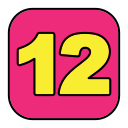
As any student knows, life is full of essay deadlines. From papers for class to applications for college, it can seem like there’s always something that needs to be written.
And while some students find the task of crafting an essay to be daunting, the good news is that with a few simple strategies, anyone can learn how to write clearly and concisely.
One of the most important things to remember when writing an essay is to make sure that the first sentence is strong.
This will help to grab the reader’s attention and give them a sense of what the essay will be about. It’s also important to be clear and concise in your writing.
This means using specific language and avoiding unnecessarily long or complex sentences.
Finally, it can be helpful to have someone else read your essay before you submit it. This will allow you to catch any errors or typos that you may have missed.
By following these simple tips, you can make sure that your next essay is clear, concise, and error-free.
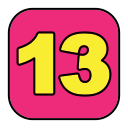
Precisely state your argument. Your written work has to communicate meaning in such a way that it impresses the reader, persuades them of its point-of-view, or achieves whatever objective you had when writing it.
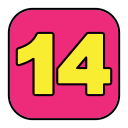
Remember that stories are meant to be creative and engaging. So, while accuracy is vital in telling them — don’t worry about being 100% true!
– Instead, focus on how your story can make life more interesting or exciting for readers – Make sure it has all the elements of great storytelling (foreshadowing; tension builder).
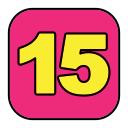
When you are writing, make sure that your opinion is free of prejudice and that all the information has been sourced.
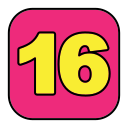
The idea is not to edit while you are writing your first draft, otherwise, it will disrupt your flow and make the work more difficult.
You can save editing after finishing out all of those rough first draft words!
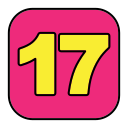
When writing an introduction, it’s best to focus on getting started instead of worrying too much about how long or short your opening words will be.
Skipping this section can make editing easier because you won’t need as many edits once everything flows together better!
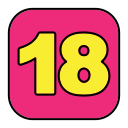
The power of synonyms is in the variety it provides.
When you find yourself using repetitive phrases, look up different vocabulary to keep things interesting and engaging for your readers!
Next step please stay focused
Writing an essay can be a challenging task, especially if you are trying to juggle multiple deadlines at once.
However, there are a few strategies you can use to help you stay focused and get the job done. First, time management is key.
Make sure to give yourself enough time to write and revise your essay, and start working on it as soon as possible.
Secondly, more resources can be very helpful. If you are struggling to come up with ideas, try talking to friends or family members, conducting research online, or reading other essays for inspiration.
Lastly, small groups can also be effective. If you find it difficult to concentrate, try working with a friend or two to bounce ideas off of each other and stay on track.
By following these tips, you can learn how to stay focused when writing an essay and make the process less daunting.
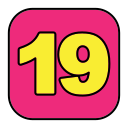
Meditation and mindfulness have been proven to increase focus, reduce stress levels, and improve sleep patterns.
The brain goes through an ultradian cycle where we are either focused or distracted depending on our needs for rest during these cycles.
So it’s important that you take advantage of this natural pattern by working hard when your mind is clear but resting often in order to maintain energy efficiency.
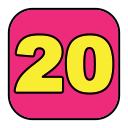
When you’re working on an essay as a college student, it’s important to get up and move every now and then.
Stretching or going for a walk will wake your body up faster than any other form of exercise – that way when the time comes when there is some down-time between writing sections in particular.
You’ll feel more energized so finishing this assignment isn’t as much work!
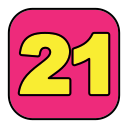
Have a go at paying attention to music. Assuming that you are working in a spot with different interruptions, it is smart.
Music can assist you with diminishing pressure and concentration. Ensure you don’t begin singing since it tends to very divert much.
Pick tracks without verses or melodies in another dialect.
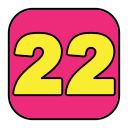
Shut out every likely interruption. In the event that you don’t have to utilize the Internet, then work disconnected.
Assuming you want admittance to the Internet to do investigate, close any tabs connected with your email and online entertainment.
Goodness, and mood killer your telephone! All the Twitter updates and instant messages can stand by.
Try not to drink excess fluid since washroom breaks can be extremely problematic. Keep away from whatever might divert you during a work meeting.
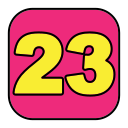
Plan something amusing to accomplish after you are finished with your work. At times, a prompt award implies a ton.
Consider what you will do after you finish that article since this will propel you to compose quicker.
Guarantee yourself that you will go for a stroll, eat a treat, or call a companion. Then, at that point, your composing will move at lightning speed.
Realizing that you need to finish your venture by a specific time can be exceptionally rousing, yet realizing you have something invigorating to do when it’s done can be significantly more inspiring.
Considering this, simply finish your work and appreciate life!
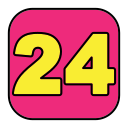
Utilize the incentive technique to keep yourself aroused. This approach is reasonable.
Acclaim yourself on the off chance that you start early and rebuff yourself assuming you neglect to begin on time.
Be merciless. Stick choices incorporate not involving Facebook for a little while or figuring out longer than 60 minutes.
Carrot choices could be eating a decent treat or watching your #1 series or entertaining feline recordings.
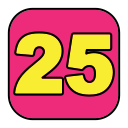
Consider the most awful results of bombing that task. Let these persuade you. What could occur assuming things turn out badly?
Will you bomb the whole course? Will you need to exit school?
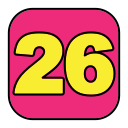
Contend with somebody. Recommend to at least one schoolmate that you contend recorded as a hard copy your tasks to see who can finish theirs first.
Obviously, it’s not the most interesting game ever, yet since you need to compose the paper, at any rate, a little cutthroat soul may very well further develop your use time effectively.
Now After Finish Writing What Should You Do
Whether you have a student life or a college student, these devices you should follow to have effective writing skills and have a good strategy while writing the whole piece of any article for any audience.
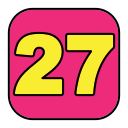
Nail the arrangement. Odds are one of the circumstances for presenting your task incorporates an exact way of arranging.
Ensure that textual style and edges are right.
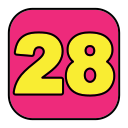
Check your reference rundown and statements. These are unquestionable necessities for scholastic composition.
Be certain you have embedded every one of the references and references you have utilized while composing your paper.
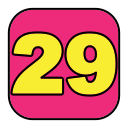
Set up a few bits of paper. Composing your training papers might be more reasonable on the sheets than in MS Word. The paper needs interruptions.
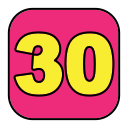
The importance of proper grammar should not be underestimated. Good grammar is essential for clear and effective communication, both in writing and in speech.
It is also important in ensuring that your work is taken seriously. In the publishing world, for example, submissions with poor grammar are often automatically rejected, regardless of the quality of the content.
Even in less formal settings, bad grammar can make you seem careless or uneducated. Good grammar can matter if demonstrates that you are attentive to detail and take your audience into consideration.
For teachers, relevant grammar is especially important in setting a positive example for their students.
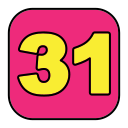
Surf the web to find practice exposition themes. You might involve any internet searcher and type in something like “themes for papers.” Pick a subject as indicated by your grade level.
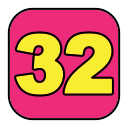
Utilize the five-section paper structure. Indeed, even in your work on composition, you can’t get away from the scholastic association.

Focus on subtleties. Remember other basic models of piece assessment like substance, sentence structure, and style. You need to show your proficiency.
Bonus Writing Stragtregis
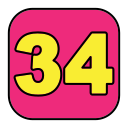
To avoid having a difficult time understanding what you’re trying to say, try minimizing the number of negatives in your sentences. Whenever possible use positive words instead!
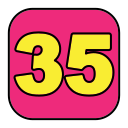
Shorter sentences are usually easier to read. However, when taken too far and lead to very choppy writing.
Which is hard on the reader’s eyes (and makes you seem uneducated) try mixing in some long ones from time-to use so that your output has an interesting flow without being overly complicated or difficult.
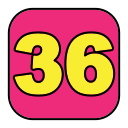
Utilize key terms reliably By and large, familiar speakers of a language have more words accessible to them, and they frequently know various ways of communicating a similar thought.
Particularly in an abstract composition, for example, in fiction, essayists are urged to shift their writing by utilizing many close equivalents, rather than rehashing similar words ordinarily.
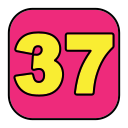
Balance the utilization of straightforward and refined language A straightforward method for involving some refined language in your composition.
While likewise keeping your ideas and contentions straightforward is to utilize more intricate connectors and change words proper to your field.
For instance, “Since X happened… ” can turn into “Considering that X occurred…” Here, are more “complex” equivalents of connectors and advances.
Wrap Up
Writing effectively is a process that can be learned and perfected with practice. In this article, we’ve outlined some of the best strategies for aspiring writers to follow.
These tips will help you produce clear, concise, and well-written papers that are easy on the eyes – and the readers to understand. So what are you waiting for? Start writing!
References
- Writing Strategies: Ministry of Education (Ontario, Canada)
- The Basics of Essay Writing: UNSW
- The Ultimate Guide to the 5-Paragraph Essay: Thought Co.
- Example Five-Paragraph Essay: UW Libraries
- 50 Conducting Research: WU Libraries
- Brainstorming: UNC Writing Center
- Academic Writing Style: USC Libraries
- Formatting a Research Paper: UMN Libraries


